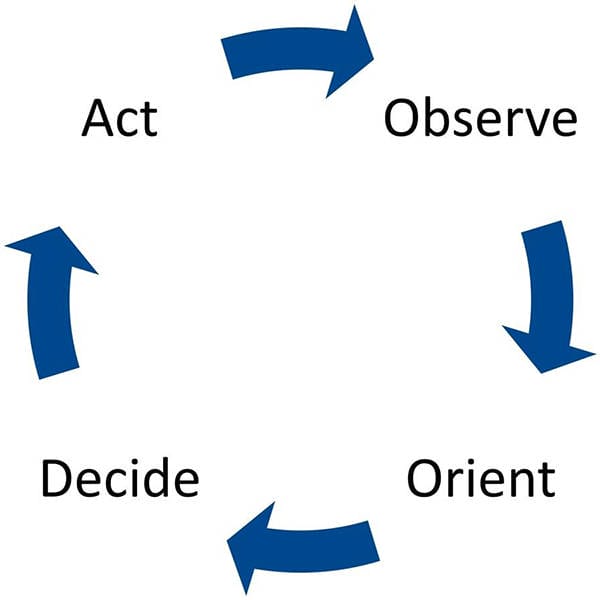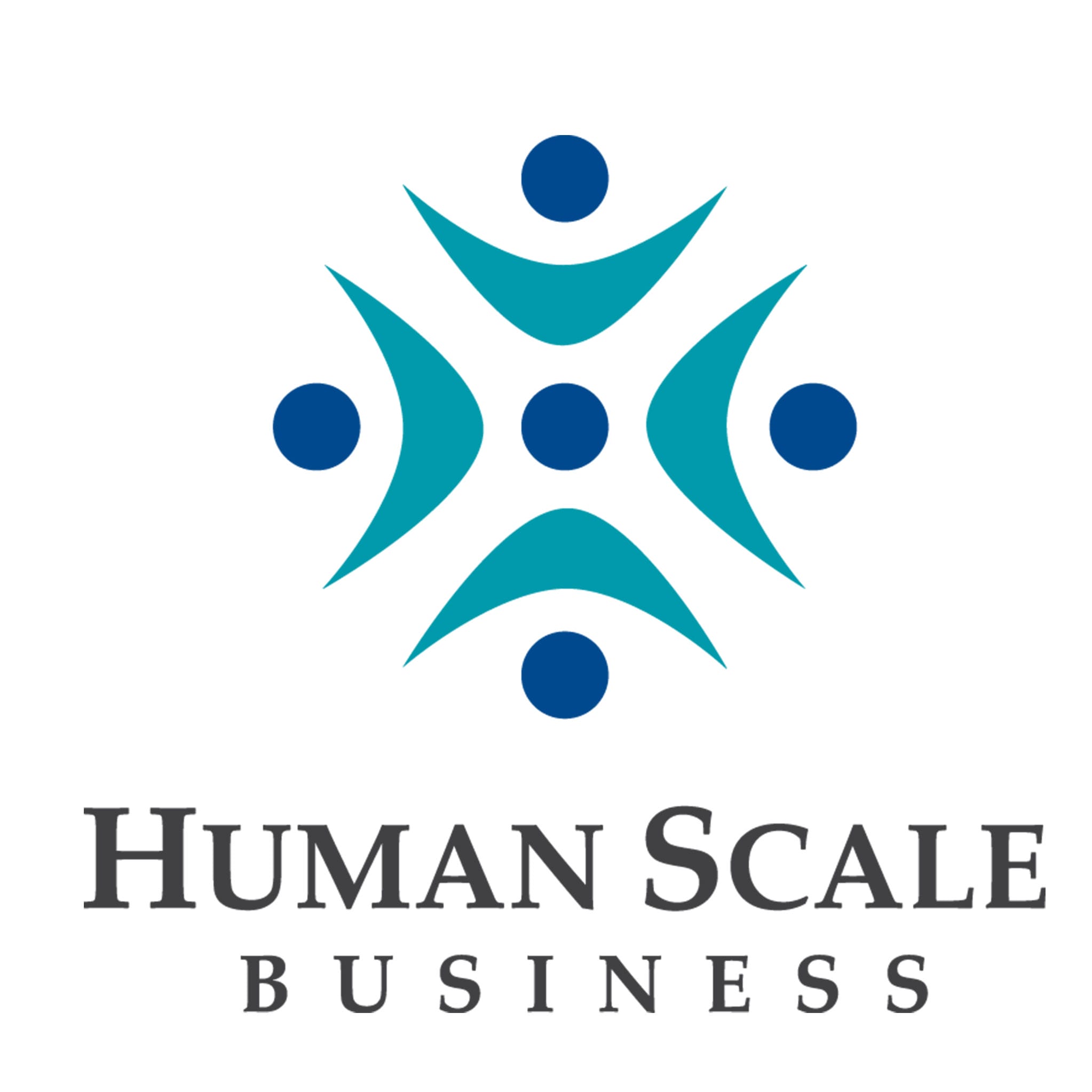As a business leader, you undoubtedly know how to make a decision and act upon it. You know what the Marines know:
If we consciously post-pone taking action for some reason, that is a decision. Thus, as a basis for action, any decision is generally better than no decision.—Warfighting
However, to effectively learn and adapt in the face of a changing environment, deciding and acting is only half the story. You need to have the capacity to rapidly and iteratively circumnavigate the entire Observe→Orient→Decide→Act, or “OODA”, cycle.
You can glean advantage if your OODA cycle time if faster than that of your competitors—or the pace of change of the environment, itself.
- To observe means paying attention to relevant, available information about the environment. That means listening to your intuition as well as reading reports and analysis.
- To orient means to make sense of your observations. What does it mean to you? What actions are feasible?
- To decide means to commit resources to a course of action.
- To act means to execute on your commitment. Acting changes things. It reveals new information, which triggers a new OODA cycle.
Easier said than done. We risk getting stuck in the part of the cycle in which we’re the most comfortable and accomplished. MBA-types might find themselves singing a continuous chorus of “O-O-O-O.” You know the song: analysis paralysis. Entrepreneur-types, on the other hand, often pound out a drumbeat of “D-A-D-A-D-A.” They get so busy doing that, they never stop to think about how the world is changing around them. It’s a type of insanity: doing the same thing over and over and expecting different results. What matters is the relative speed at which you cycle through the OODA loop. Speed for the sake of speed is exhausting. As famed basketball coach John Wooden would say,
Be quick—but don’t hurry.—John Wooden
Key Ideas
- OODA stands for the Observe → Orient → Decide → Act cycle.
- The OODA cycle acknowledges the importance of the environmental rate of change.
- Cycle through your OODA loop faster than your competitors or environment to gain an advantage.
- Be quick but don’t hurry.


